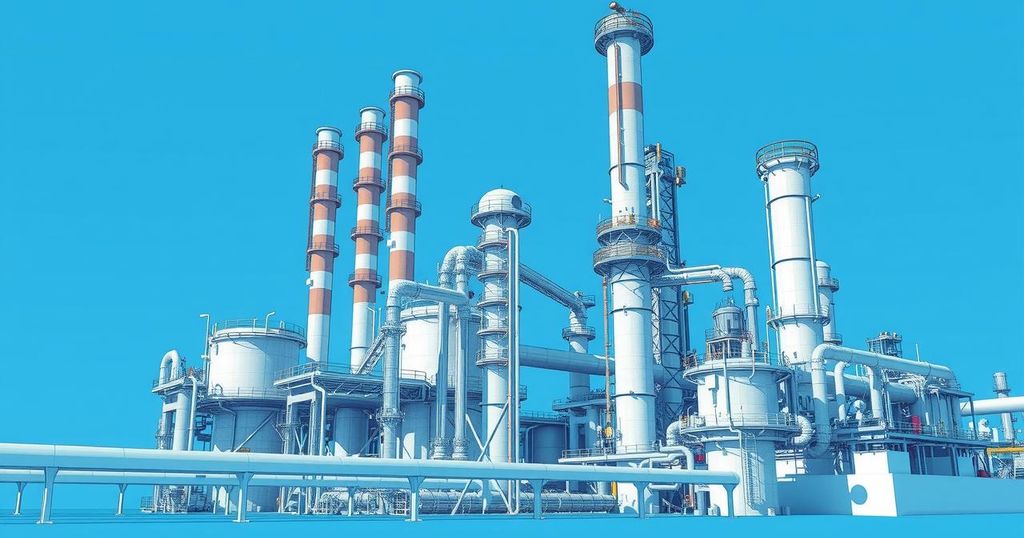US Approves $4.7 Billion Loan for Controversial Mozambique Gas Project
The United States has approved a $4.7 billion loan for a gas plant in Mozambique, a project entangled in allegations of human rights abuses and environmental concerns. This financing, facilitated by the US Export-Import Bank, aims to support TotalEnergies’ development amidst the backdrop of a significant budget and climate pledges. The project, regarded as harmful for its carbon output, faces criticism from various environmental advocates and uncertainty regarding backing from other countries.
The United States has officially sanctioned a $4.7 billion loan for a liquefied natural gas plant in Mozambique, characterized as a “carbon bomb” and engulfed in allegations regarding human rights violations. This financing, approved by the US Export-Import Bank (EXIM), supports TotalEnergies’ project located in the Cabo Delgado region, which estimates a broader financial commitment of $20 billion for one of Africa’s largest energy initiatives.
Although the US EXIM has not publicly confirmed the loan, reports indicate its significance in facilitating the Mozambique project, which faced a halt due to security concerns. The plant’s construction was interrupted in 2021 after a violent attack by the Al-Shabaab militant group, leading to numerous civilian casualties. TotalEnergies is under investigation for possible involuntary manslaughter over claims that it failed to protect its subcontractors amid the crisis.
TotalEnergies anticipated restarting the construction in 2024 but has since pushed this date back to 2029 due to ongoing security issues and uncertainty surrounding funding. The initiative has attracted criticism from climate activists labeling it a significant environmental threat, predicting it could emit 121 million tonnes of CO2 equivalent annually throughout its lifespan, which can extend nearly 40 years.
Campaigners argue that investing such considerable taxpayer funds in the project contradicts pledges made by the Biden administration to reduce funding for fossil fuel projects abroad. Critics, including Collin Rees from Oil Change International, have labeled the undertaking both an environmental catastrophe and a violation of human rights, expressing concerns about the project’s financial viability amidst increasing political and environmental scrutiny.
While the UK and Dutch export credit agencies previously supported Total’s project, they are reconsidering their commitments in light of ongoing developments. Reports indicate that the UK government is evaluating the legal aspects of withdrawing its financial backing. Amidst these considerations, members of the Organisation for Economic Co-Operation and Development (OECD) have faced challenges advancing a collective agreement to cease public financing for fossil fuel projects abroad, following setbacks attributed to numerous geopolitical factors.
In conclusion, the US government’s approval of a multi-billion-dollar loan for the Mozambique gas plant amidst serious human rights and environmental concerns highlights significant tensions between fossil fuel financing and climate commitments. The response from international lending agencies remains uncertain as they reassess their roles in this controversial project. Meanwhile, the project faces mounting criticism from climate activists, with widespread implications for both local communities and global climate goals inherent in its operation and support.
Original Source: www.climatechangenews.com




Post Comment